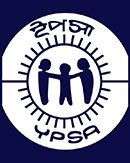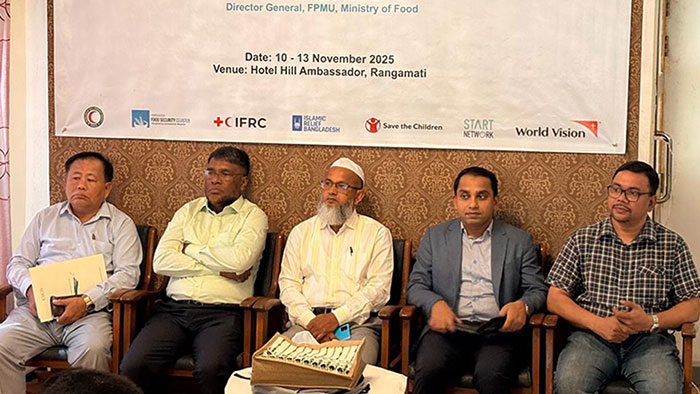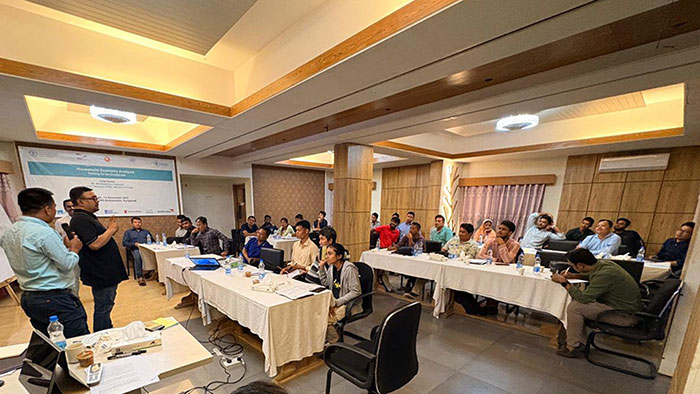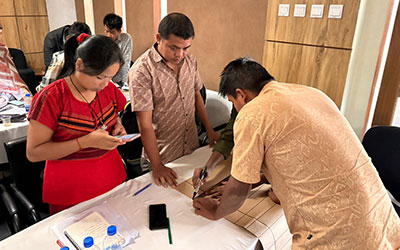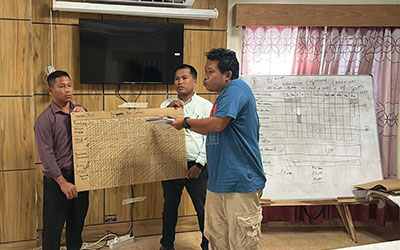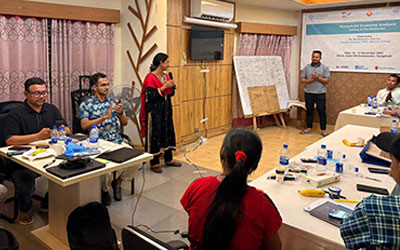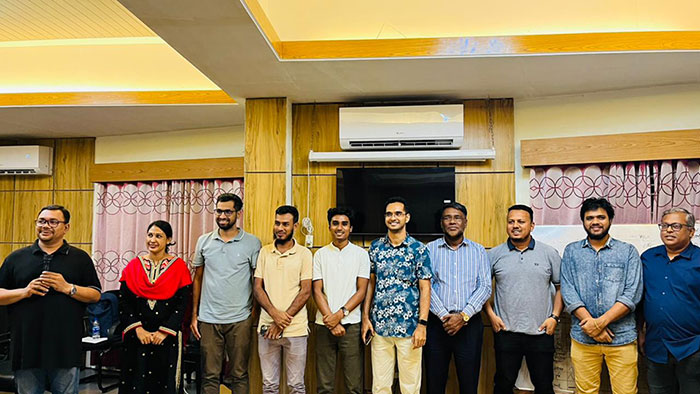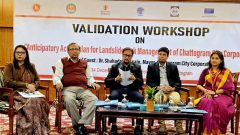Household Economy Analysis (HEA) Training officially commenced with the participation of senior government officials and facilitators from Food Security Cluster, WFP, FAO, Save the Children, NIRAPAD, Islamic Relief Bangladesh, World Vision, START Network, Care Bangladesh and other INGOs, marking a significant step toward strengthening evidence-based anticipatory action in Bangladesh’s most hazard-prone regions. The event took place at a hotel in Rangamati, on 10 November 2025.
The opening session began on time with remarks from Dr. Tushar Kanti Chakma, District Livestock Officer; Md. Maniruzzaman, Deputy Director, Department of Agricultural Extension (DAE); and Selim Mohammod Sagar, District Controller of Food. Their speeches highlighted the pressing need for improved data systems to better understand household vulnerabilities, livelihood shocks, and food security risks in disaster-prone areas.
The panel session was facilitated by Mohammad Mainul Hossain Rony, Food Security Cluster Coordinator, who emphasized the importance of collaborative, multi-agency approaches in building a robust and anticipatory food security framework.
The training was formally inaugurated by Md. Mahbubur Rahman, Director General of the Food Planning and Monitoring Unit (FPMU), Ministry of Food, who attended via online as the Chief Guest. In his address, he underscored Bangladesh’s increasing exposure to landslides in the Chittagong Hill Tracts (CHT) and flash floods in the Haor Basin, noting how these hazards critically undermine food production, income stability, and household resilience. He emphasized that HEA is a timely and essential tool for guiding anticipatory and forecast-based responses.
HEA: A Crucial Tool for Hazard-Prone Regions
Bangladesh’s northeastern Haor Basin frequently faces sudden flash floods, while the Chittagong Hill Tracts experience recurrent landslides—both of which severely impact livelihoods, restrict market access, and push vulnerable households into food insecurity. The ongoing HEA initiative aims to address these challenges by generating hazard-specific, empirical evidence on how different wealth groups experience and cope with shocks.
The HEA will support:
- Forecast-based financing and anticipatory cash support
- Early warning systems linked to livelihood groups
- Emergency planning and district contingency protocols
- Identification of income deficits, coping strategies, and market functionality
This year’s HEA will cover 10 districts, including six Haor districts and four districts from the CHT and adjacent areas, with 40 units of analysis and 280 planned Focus Group Discussions (FGDs). The findings will guide the Food Security Cluster, humanitarian agencies, and government ministries in designing more accurate, targeted, and time-sensitive interventions.
Operational Support by YPSA and Save the Children
The entire training event—including logistics, coordination, and operational arrangements—was jointly supported by YPSA and Save the Children. Their contributions ensured smooth organization and a successful launch of the 4-day training.
The HEA Training marks the beginning of a comprehensive nationwide effort that will continue through late 2025, contributing critical evidence to improve early warning systems, anticipatory action plans, and humanitarian response strategies across Bangladesh’s most vulnerable regions.
